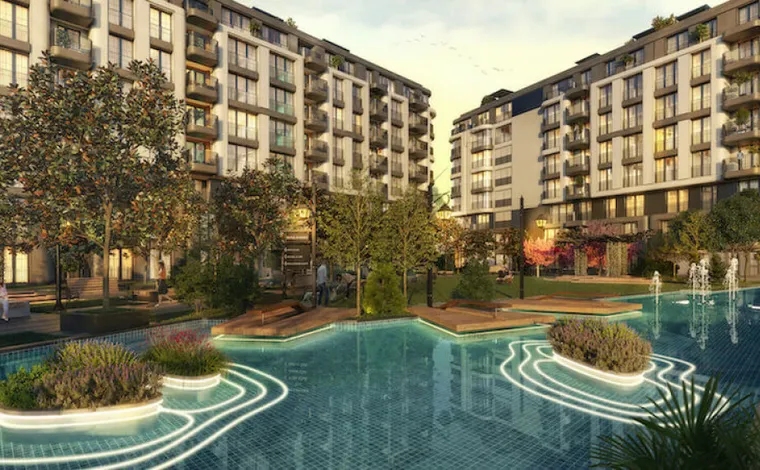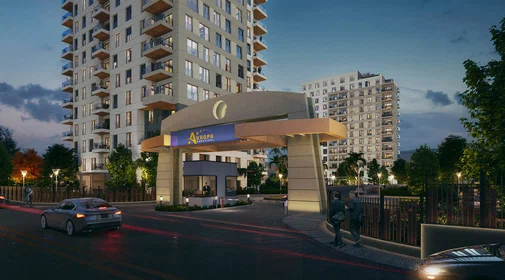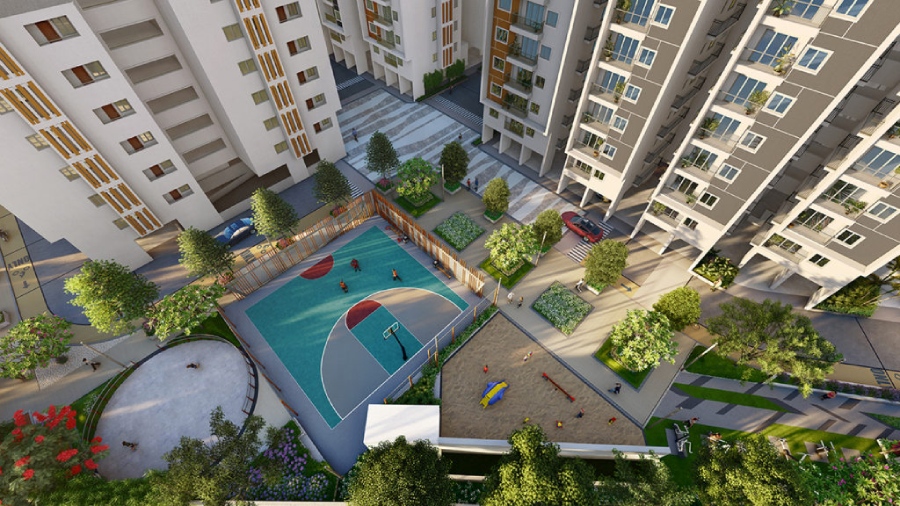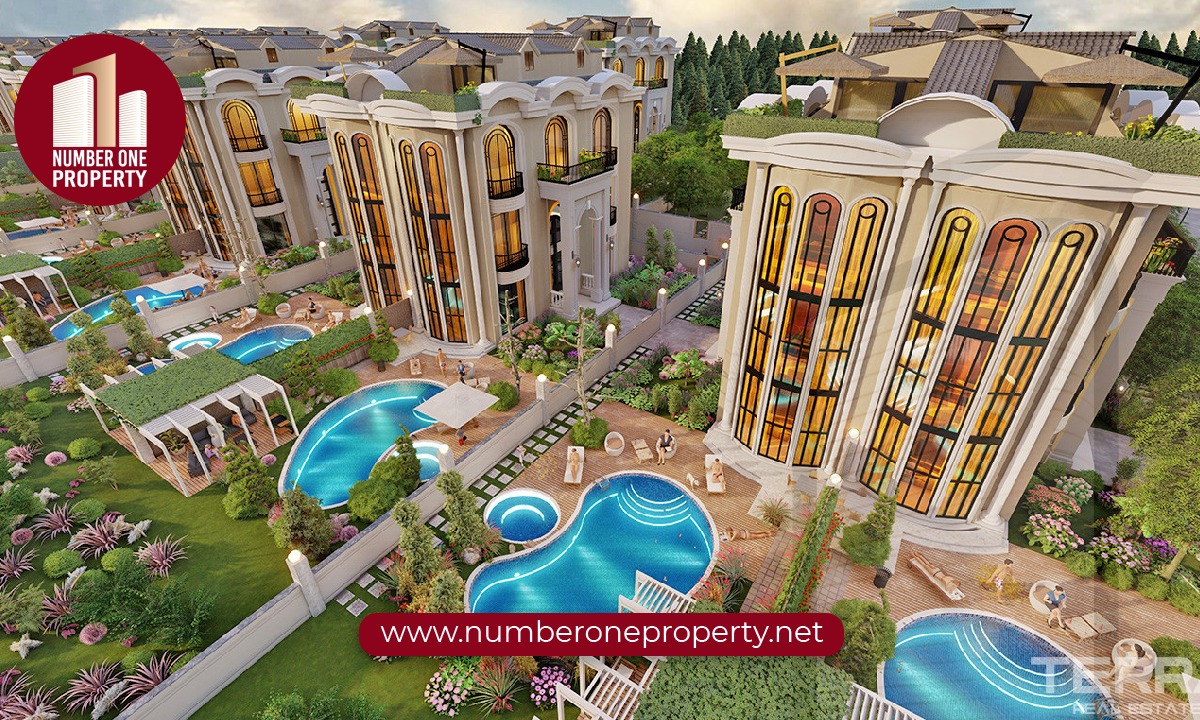When considering a new home, the allure of a gated community often stands out.
These exclusive residential communities offer a unique lifestyle that attracts many homebuyers.
Gated communities promise enhanced security, privacy, and community, making them a popular choice for families and individuals. They are known for their safety, high home and property values due to restricted access, 24/7 security, and lower risk for opportunistic crimes.
However, like any living arrangement, buying property in a gated community comes with its own set of pros and cons.
Gated communities are designed to provide a safe and serene environment, often featuring controlled access points, private amenities, and well-maintained landscapes.
This setup can create a feeling of exclusivity and prestige for residents, appealing to those who value peace of mind and a close-knit neighborhood.
Living in a gated residential community can have benefits, such as reduced crime rates, less traffic, and a more aesthetically pleasing environment.
On the flip side, gated living areas can also present certain drawbacks. Higher property prices, homeowners’ association fees, and potential restrictions on property modifications are common concerns.
Additionally, isolation from the surrounding city or town may not suit everyone’s lifestyle.
This article will delve into the pros and cons of living in a gated community in Istanbul.
By understanding the full picture, you can make a well-informed decision on whether this living arrangement aligns with your personal and financial goals.
Pros of Buying Property in a Gated Community

Buying a home in a gated community has become an increasingly popular choice for many.
Gated communities offer a range of benefits that appeal to a wide variety of homebuyers.
Many gated neighborhoods provide a unique combination of security, privacy, and exclusive amenities such as swimming pools, tennis courts, golf courses, walking trails, and fitness centers that enhance the overall living experience. However, potential drawbacks like a false sense of security and issues related to access control must be considered.
We will explore the numerous advantages of purchasing property in a gated community, highlighting why many people are drawn to these exclusive residential areas
Gated Community Security: A Major Advantage
In most gated communities, residents enjoy a heightened sense of security due to restricted access controlled by security gates and personnel.
Security guards and robust security features provide added protection, ensuring only authorized individuals can enter the premises.
This limited access deters potential intruders and enhances homeowners' privacy and peace of mind.
The stringent security measures implemented in gated communities effectively create a safer environment for families and residents, making them an attractive choice for those seeking a secure place to call home.
Privacy in Gated Communities

Residing in gated communities allows residents to safeguard their freedoms in a secure and regulated setting.
Gated communities typically feature a secure environment where access is restricted to only residents and authorized visitors, and then avoid unwanted visitors
The presence of a security gate operated by private security personnel ensures that only people with legitimate reasons can gain access, enhancing overall safety and privacy.
Homeowners associations often govern these communities, maintaining standards that contribute to the resident's quality of life.
This controlled access minimizes unwanted traffic and fosters a tight-knit community atmosphere where residents can enjoy peace and privacy within their homes.
Gated Communities and services value
When discussing higher property values, we should highlight how they contribute significantly to amenities such as community centers, golf courses, tennis courts, fitness centers, shopping centers, swimming pools, and well-regulated trash and recycling rules.
These communities are designed to offer residents a range of recreational and leisure facilities, fostering a high-quality living experience that attracts affluent buyers.
Beyond enhancing the quality of life, these amenities also help maintain high property values by creating a desirable environment with less traffic and superior maintenance services.
The presence of swimming pools, golf courses, tennis courts, fitness centers, and other recreational facilities promotes physical well-being and luxury living, cultivates a sense of community among residents, and enhances community culture.
Living near a golf course offers scenic views, recreational activities, and potential property value appreciation. Still, it may also come with higher noise levels, compromised privacy, and the risk of property damage from golf-related activities.
Moreover, stringent maintenance services ensure that common areas and infrastructure are well-maintained, further boosting the appeal and long-term value of properties within gated communities.
Thus, combining exclusive amenities and meticulous upkeep is pivotal in elevating gated communities’ overall service value and attractiveness in the real estate market.
Social Dynamics in Gated Communities
Gated communities offer a distinctive residential experience with a balance of privacy and community engagement.
The stringent access controls inherent in gated neighborhoods foster a sense of security and exclusivity, enhancing residents' peace of mind.
At the same time, these communities feature amenities like community pools and clubhouses managed by homeowners associations, which serve as focal points for social interaction and recreational activities.
This environment facilitates comfortable living and encourages vibrant social dynamics, where neighbors often form close bonds and participate in various communal events.
Overall, gated community living combines the benefits of privacy with a lively social scene, creating a desirable and fulfilling lifestyle for its residents.
Cons of Buying Property in a Gated Community
While gated communities promise a lifestyle of security and exclusivity, prospective homebuyers should weigh these advantages against potential drawbacks.
Home buyers must explore the less glamorous aspects of living within gated confines, revealing nuanced considerations that could impact their decision-making process.
Understanding these cons is crucial for making an informed choice about whether purchasing property in a gated community aligns with your lifestyle and preferences.
Cost Considerations in Gated Communities
When considering the costs of living in gated communities, several vital factors differentiate them from non-gated communities.
One significant consideration is property value, which tends to be higher within gated communities due to perceived security, exclusivity, and often superior amenities such as private parks, golf courses, or recreational facilities.
However, this higher property value has financial implications, including potentially higher property taxes than similar homes in non-gated areas.
Additionally, homeowners association (HOA) fees are an ordinary expense in gated communities. They cover maintenance of communal areas, security services, and sometimes even utilities or insurance.
These fees can vary widely depending on the community's amenities and level of service provided, adding a recurring cost that homeowners must budget for beyond their mortgage payments.
While these fees contribute to maintaining a high standard of living within gated communities, they can also represent a substantial financial commitment that homeowners need to factor into their long-term financial planning.
Moreover, the perception of security and exclusivity that gated communities offer may also impact the overall cost of living, as these factors contribute to demand and subsequently influence property prices and associated expenses.
Thus, while living in a gated community can offer a desirable lifestyle with enhanced security and amenities, potential residents must carefully weigh these cost considerations against their financial situation and housing preferences to decide whether the benefits outweigh the monetary commitments.
HOA rules and community rules in a gated community
In gated communities, HOA rules are pivotal in shaping residents' daily lives and overall community ambiance.
These regulations, enforced through homeowners associations (HOAs), are designed to maintain living standards and preserve property values within the gated community.
HOA rules typically govern various aspects, from architectural guidelines to landscaping requirements, ensuring a cohesive aesthetic appeal throughout the neighborhood.
Additionally, HOA rules often dictate permissible activities within the community, such as noise levels, parking restrictions, and even rules concerning common areas like parks or pools.
Compliance with these regulations is usually mandatory for all homeowners. They are enforced through HOA fees, which fund the maintenance of shared amenities and services like security patrols or landscaping.
While these rules contribute to gated communities' overall well-being and exclusivity, they can also pose challenges for residents who prefer greater autonomy in managing their properties or lifestyles.
Balancing the benefits of community cohesion and shared amenities with the restrictions imposed by HOA rules is a crucial consideration for prospective homeowners evaluating whether gated community living aligns with their preferences and lifestyle needs.
Gated Communities: Are They Right for Families?

Several factors can significantly impact the decision-making process when considering whether gated communities are suitable for families.
Gated communities offer a range of amenities to enhance the quality of life, such as swimming pools, golf courses, community centers, and ample green spaces.
These features provide opportunities for recreation, social interaction, and a generally higher standard of living within a secure and exclusive residential area.
Moreover, enhanced security measures and access to emergency services can provide peace of mind to families concerned about safety and well-being.
However, the benefits of living in a gated community must be weighed against potential drawbacks. While controlled access and security can be reassuring, gated communities often come with community rules and regulations that can limit personal freedom.
These rules may govern everything from architectural styles to noise levels and the use of common areas, potentially affecting how families can utilize and personalize their homes.
Additionally, while gated communities typically offer essential services and amenities within their confines, they can also foster a somewhat insular environment that may limit exposure to diverse communities and experiences outside the gates.
This can be a consideration for families seeking a more integrated or culturally diverse living environment for themselves and their children.
Whether gated communities are suitable for families depends on individual priorities and preferences. Families valuing security, access to amenities, and a controlled environment may find gated communities highly appealing.
Conversely, those prioritizing personal freedom, community diversity, and integration into broader neighborhoods may prefer non-gated residential areas despite potentially fewer amenities. It's essential for families to carefully evaluate these factors to determine the best fit for their unique lifestyle and needs.
Conclusion
In conclusion, when considering whether to purchase property in a gated community, it's essential to evaluate both the advantages and disadvantages thoughtfully.
Gated communities offer enhanced security, exclusivity, and often luxurious amenities.
However, these advantages can come with trade-offs. Living in a gated community may mean adhering to community rules and regulations that can restrict personal freedoms and impose additional costs.
Furthermore, gated communities' perceived security and exclusivity may impact property values and associated expenses. Families and individuals should carefully weigh these factors against their preferences for privacy, community atmosphere, and financial planning goals.
Ultimately, investing in a gated community should align with personal priorities and ensure it meets both immediate lifestyle needs and long-term housing objectives.
Read also:
Explore Premium Properties in Istanbul
Unlocking the Potential of Commercial Real Estate Investments


